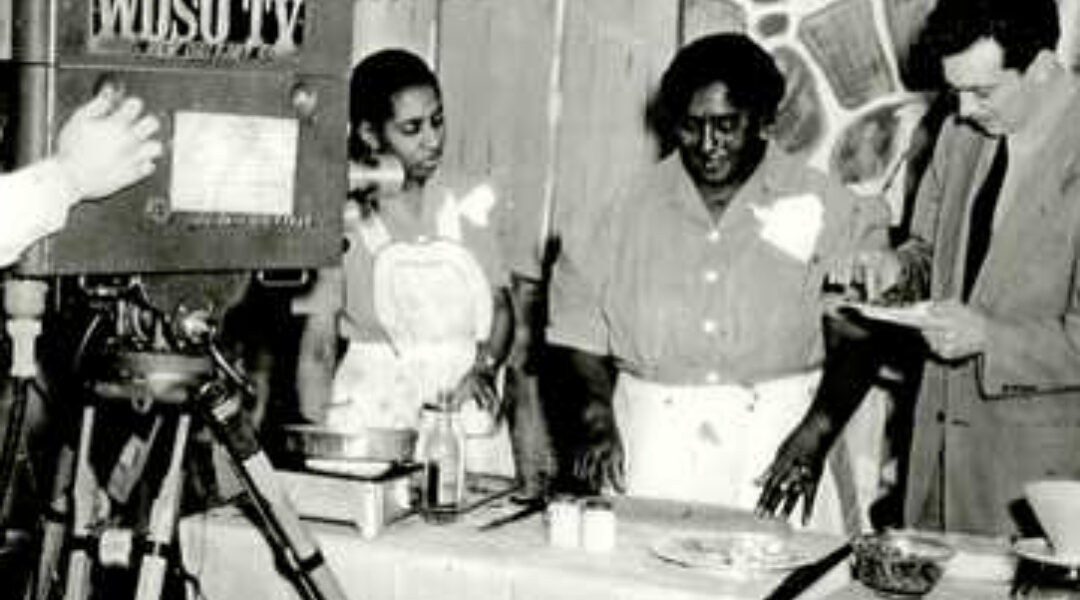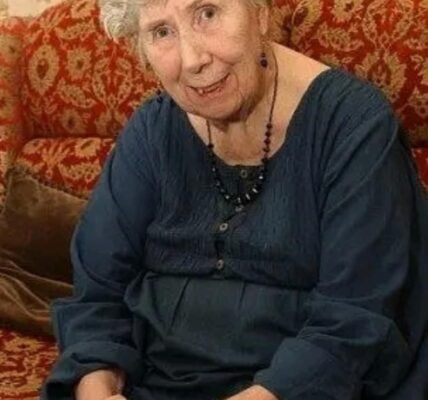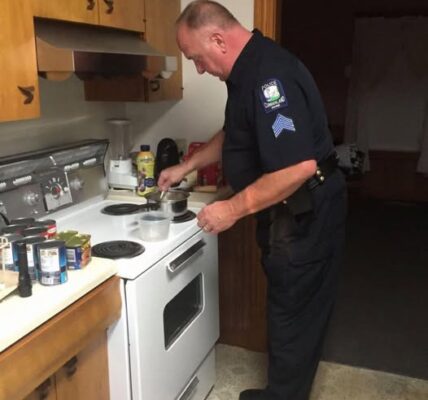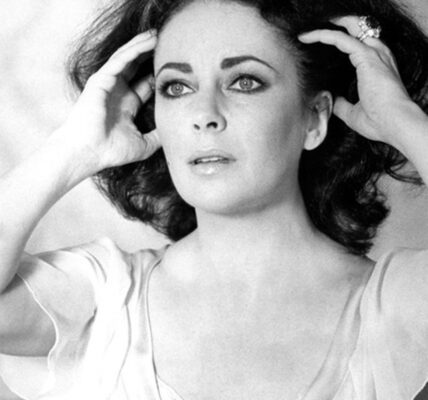
Before the world knew the names Julia Child or Martha Stewart… there was a woman the history books almost erased.
Her name was Lena Richard.
And long before television cooking shows became entertainment, long before cookbook authors became celebrities, long before America accepted a Black woman as an expert in her field—Lena was already there, already teaching, already creating, already leading.
But almost no one remembers her.
Lena Richard was born in 1892 in New Orleans, at a time when Black women were told they could cook—but never lead, never teach, never own, never dream beyond the kitchen door.
Lena didn’t argue with the world.
She simply outgrew it.
She began as a cook in wealthy households, learning not from schools, but from observation, intuition, and a gift nobody could deny. Her talent was so undeniable that her employers paid for her to attend a formal cooking school in Boston—something almost unheard of for a Black woman in that era.
She graduated at the top of her class.
But when she returned home, the world expected the same thing from her: silence, obedience, and a place in the background.
Instead, she built an empire.
Lena wrote her first cookbook in 1939—Lena Richard’s Cook Book—one of the first cookbooks ever published by a Black woman in America. Not printed for a small community, not handwritten, not local—but nationally published and distributed across the United States.
A Black woman in the Jim Crow South writing a cookbook for the entire country?
That alone was revolutionary.
But Lena didn’t stop.
She opened not one, but two restaurants—feeding everyday people and the city’s elite, serving dishes rooted in the soul of New Orleans: gumbo thick enough to stand a spoon in, oyster stew that tasted like the ocean, bread pudding that melted into memory.
She started a frozen food company decades before frozen meals became mainstream—packaging her dishes and shipping them to white-tablecloth restaurants in New York City. Chefs with European names served her food without ever acknowledging the woman who made it possible.
Lena smiled anyway.
She knew greatness did not always need applause.

But she didn’t just cook for herself.
She began teaching.
She opened her own culinary school, becoming one of the first Black women in America to formally train others—especially young Black cooks who had been denied access to white institutions. She taught cooking, business, and home economics, believing success meant nothing unless you opened the door for others to walk through.
Her students didn’t just learn recipes.
They learned dignity.
They learned confidence.
They learned that the kitchen could be power, not servitude.

Then came the moment that should have made her a national icon.
In 1949, Lena Richard became the first Black woman to host her own cooking show on American television. Not as a side guest. Not as a silent helper. But as the star.
There she was—standing in front of the camera, teaching viewers from every background how to make roux, how to plate a dish, how to season boldly, how to cook with heart.
In a country that still forced Black families into separate schools, separate buses, separate neighborhoods—Lena stood in front of a live camera and spoke to everyone.
Her very presence was a kind of activism.
She did not raise her fist.
She raised a spoon.
And the world tasted something new: a Black woman teaching with authority, intelligence, and joy.
And yet… her story almost disappeared.
Julia Child became a legend.
Martha Stewart became a brand.
But Lena Richard—who did it first—was left out of the story.
Not because she wasn’t brilliant.
Not because she wasn’t influential.
But because history, for a long time, was written by people who didn’t think a woman like her mattered.
But she did.
Every Black chef who builds a business.
Every woman of color on Food Network.
Every student told they can do more than they were born into—
They all stand on ground Lena helped build.
Her work fed people.
Her courage lifted people.
Her classroom changed lives.
Her presence on TV challenged the world without ever needing to say, “Let me prove my worth.”
She had already proven it.
In her final years, she continued doing what she always had—teaching, cooking, lifting others. When she passed away in 1950, the city of New Orleans mourned a woman they knew was great.
But the world somehow forgot.
Not because her flame was small,
but because no one bothered to protect the light.
Now, nearly a century later, people are finally saying the words:
“She deserves a documentary.”
“She deserves a film.”
“She deserves to be remembered.”
Because history isn’t just names in books.
It’s meals shared.
Doors opened.
Dreams made possible.
And Lena Richard did all of that—before almost anyone believed she could.
There are pioneers who become famous.
And there are pioneers who make it possible for others to become famous.
Lena Richard was both.
She cooked her way out of the limitations placed on her.
She taught hundreds to dream bigger than she ever could.
She stood in front of a camera when the world said she didn’t belong there.
She didn’t just cook food.
She cooked a future.




